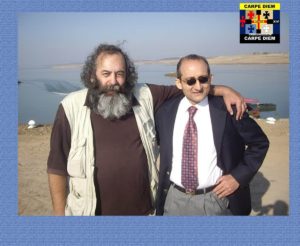From Dr Hamid Hussain
Following was in response to several questions regarding Pakistan’s regional challenges and current policies.
Kabuki Dance – Pakistan’s Balancing Act
Hamid Hussain
Pakistan’s challenging regional environment has taken some new turns and new government of Prime Minister Imran Khan is trying to cope up with these challenges. Government’s major advantage is that it has no clash with the dominant army. In many areas of foreign policy, it has ceded significant ground to the army.
Pakistan is in a difficult spot on three issues. First is rapid pace of negotiations between Taliban and Americans with projected quick withdrawal of American troops, second is isolation of Iran and third is potential entanglement in intra-Arab rivalry with United Arab Emirates (UAE) and Saudi Arabia on one and Qatar on the other side. Pakistan is facing these regional challenges in the background of internal political instability and very serious economic downward trend. Part of political instability and associated economic meltdown is due to self-inflicted wounds. Departing from the normal process of check and balance, judiciary and army played an active role in tuning up the system that will have its own set of consequences. It has widened the political gulf and added new fissures.
Regional challenges of Pakistan are directly linked with American policies. We are living in a Trumpian world that has sowed a lot of confusion on all fronts. Every country and non-state player is adjusting positions at such a rapid speed that it is hard to make sense of every move. Pakistan is also caught in this Trumpian world on several fronts.
US policy is in disarray with no coordination between different government agencies. President Trump is using single point agents without full institutional support behind these efforts. In many cases, some power centers of Washington are diametrically opposed to President’s efforts. It is probably right time for withdrawal of American troops from both Syria and Afghanistan. Trump may have realized what Christopher Fettweis wrote in 2008 in his book Losing Hurts Twice as Bad that “bringing peace to every corner of the globe, even those whose stability we have wrecked through our own incompetence, is not necessarily in the strategic interest of the United States”. However, the method in which it is being done has confused both allies and foes. American intelligence agencies are publicly disagreeing with Trump that is unprecedented. In late January 2019, in a hearing at Senate Intelligence Committee, Director of National Intelligence and heads of Central Intelligence Agency (CIA), National Security Agency (NSA) and Federal Bureau of Investigations (FBI) contradicted Trump on security issues. They told the committee that Iran was still abiding by the nuclear deal. Trump had pulled out of the deal stating that Tehran had broken the deal. Furious Trump sent his twitter tirade saying that ‘the intelligence people seem to be extremely passive and naïve when it comes to the dangers of Iran. They are wrong’. Continue reading Kabuki Dance – Pakistan’s Balancing Act

 Another BP Podcast is up. You can listen on
Another BP Podcast is up. You can listen on 